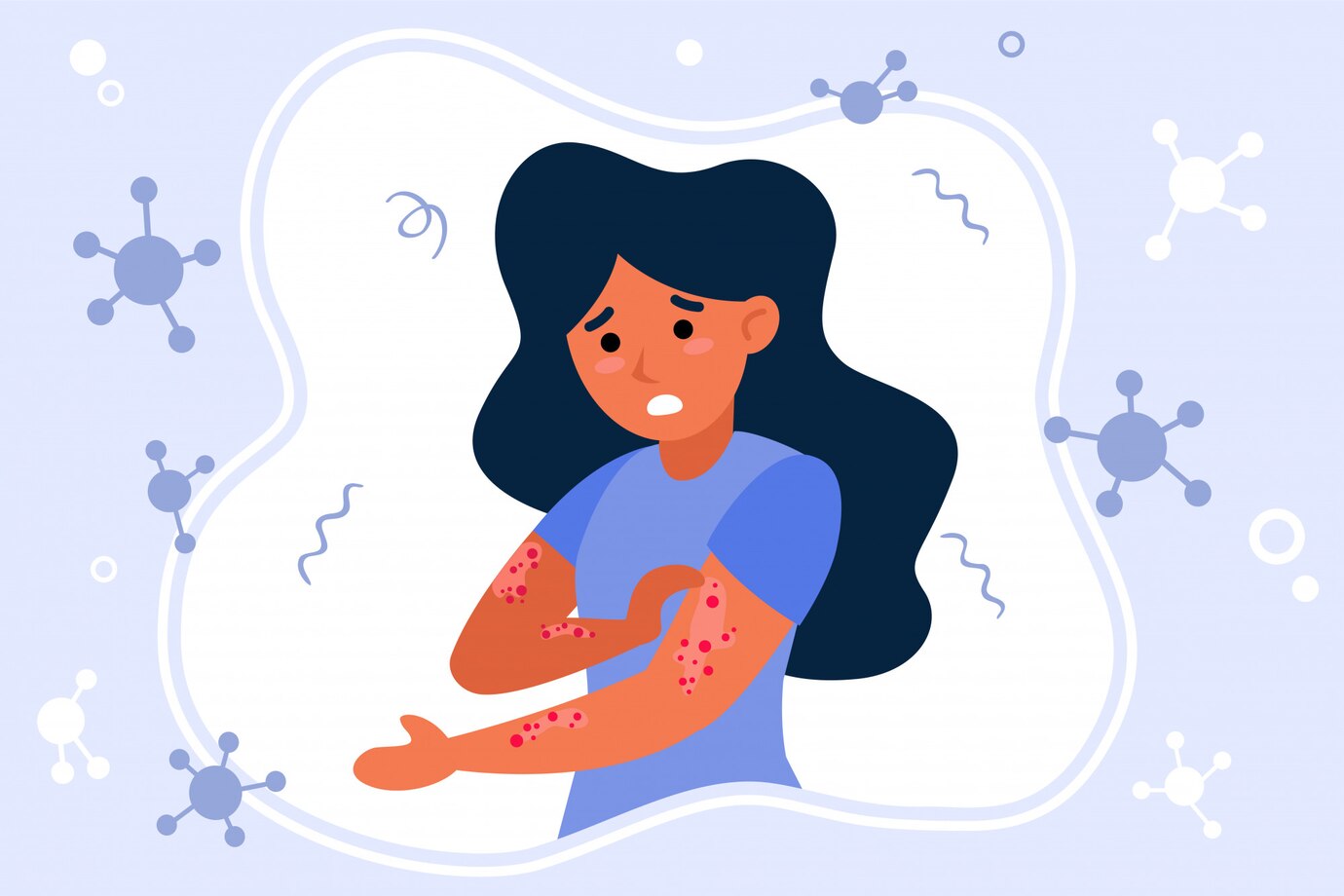
Understanding Skin Allergies: Eczema, Hives, and Contact Dermatitis
Introduction:
Your skin is your body’s largest organ, and sometimes it can be sensitive to certain substances, causing allergic reactions. Skin allergies can manifest in various forms, including eczema, hives, and contact dermatitis. Let’s explore these conditions and how to manage them.
Eczema:
The Itchy, Red Rash Eczema, also known as atopic dermatitis, is a chronic skin condition characterized by itchy, inflamed patches of skin. These patches may appear red, dry, and scaly, and they can sometimes ooze or crust over. Eczema often occurs in individuals with a personal or family history of allergies, asthma, or hay fever.
Hives:
The Fleeting Rash Hives, or urticaria, are raised, red welts that appear suddenly on the skin. They can vary in size and shape and may come and go within hours. Hives are typically caused by an allergic reaction to food, medication, insect stings, or other triggers. They may be accompanied by itching, swelling, or a burning sensation.
Contact Dermatitis:
The Rash From Touch Contact dermatitis is a type of skin inflammation that occurs when the skin comes into contact with an irritant or allergen. Common triggers include soaps, cosmetics, metals (such as nickel), and certain plants (like poison ivy). Symptoms may include redness, itching, swelling, and blistering in the affected area.
Managing Skin Allergies:
- Avoid Triggers: Identify and avoid triggers that worsen your skin allergies. This may involve using hypoallergenic skincare products, avoiding known allergens, and wearing protective clothing when necessary.
- Moisturize: Keep your skin well-hydrated with gentle, fragrance-free moisturizers to help soothe dryness and reduce itching.
- Use Topical Treatments: Over-the-counter or prescription topical corticosteroids, antihistamines, or calcineurin inhibitors may help relieve itching and inflammation associated with skin allergies.
- Practice Good Skincare: Follow a gentle skincare routine, including mild cleansers and lukewarm water, to avoid further irritation to sensitive skin.
- Seek Medical Advice: If your skin allergies are severe or persistent, consult a dermatologist for personalized treatment options and management strategies.
Conclusion:
Skin allergies can be uncomfortable and disruptive, but with proper management and care, you can alleviate symptoms and improve your skin’s health. By understanding the different types of skin allergies and how to manage them, you can enjoy smoother, happier skin.
To seek medical advice, always consult a Doctor. Here are our recommended EXPERTS. Click here
To read more on SKIN. Click Here


